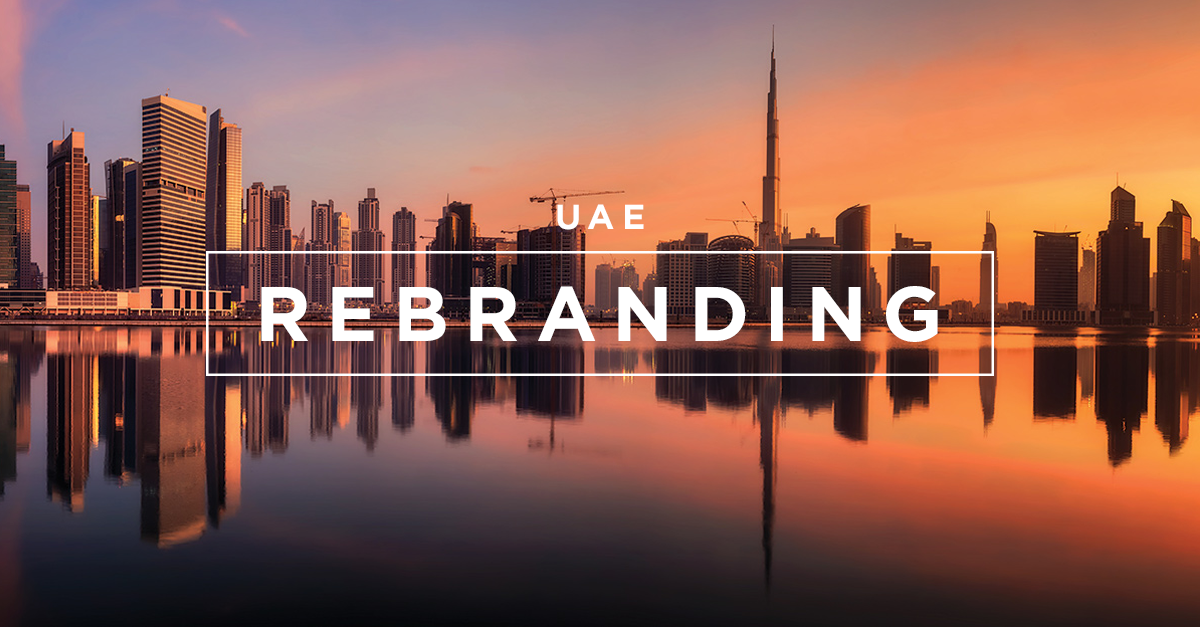UAE rebranding and its impact on real estate
Celebrated graphic designer Milton Glaser developed the “I love NY” slogan in 1977 and designed a logo that replaced the word “love” with a heart symbol, for an advertising campaign of the Tourism Department of New York State. The logo has since become a cultural icon, printed on over a trillion t-shirts and merchandised all over the world. Its contribution to New York’s tourism branding cannot be downplayed. The ubiquity of that logo represents not just a successful branding story, but the marketing power of a unique, unassuming symbol depicting the spirit of a place. Likewise, several corporations, states and nations have undertaken branding projects since, albeit with varying degrees of success.
Recently, a national branding project for the UAE has been launched(1), under the leadership of Sheikh Mohammed bin Rashid Al Maktoum, the Ruler of Dubai, and Sheikh Mohamed bin Zayed Al Nahyan, the Crown Prince of Abu Dhabi. 49 artists, seven from each Emirate, will participate, brainstorm and design the UAE nation brand logo, which is to represent the tradition and history of the region, as well as its grand aspirations for the future. “The UAE is a land of opportunities and dreams. This is our story that deserves to be narrated to the world,” Sheikh Mohammed said during the launch. The logo is part of a larger branding campaign, designed to attract investments, boost trade, promote tourism and cater to the country’s globally drawn talent pool. Besides impacting the regional macroeconomics, the rebranding is expected to revitalize the real estate sector by creating favourable market conditions.
Rebranding
As an umbrella term, nation branding or rebranding encompasses public diplomacy, building a reputation in international relations and enriching economic reliability. Such initiatives need to be cognizant of new challenges, opportunities and the changing world order. It is worth noting that UAE did not make the cut in BrandFinance’s top Global Brands ten years ago. In 2016, the same firm ranked UAE as the third strongest global brand(2). This change did not occur overnight. The UAE’s earliest branding strategy dates back to the 1980s, aimed at turning the region into a financial gateway and investment safe haven.
The 21st century has witnessed Dubai transition into a knowledge-based economy, which also boasts of a burgeoning tourism sector, unprecedented architectural achievements and advancing services industry. Ever since 2014, Dubai has remained within the list of top five most visited cities in the world. However, in the current information age and socio-political climate, it is vital to constantly measure and manage the perceptions a city or a country projects to the global consciousness. Such a project needs to rely on adopting methodical and intelligible branding methods, coupled with well-articulated impressions of economic, humanitarian and cultural conditions. Through the newly-launched rebranding project, the UAE aims to share its story of becoming a model for the exploration of possibilities for human development. The nation brand project will extend Dubai’s footprint as a beacon of hope and inspiration for the global population and governments alike.
Impact
Similar to a corporate marketing technique aimed at raising capital and capturing value, nation branding is aimed at boosting investments and promoting a balance of trade, on a large scale and for the long-term. The resulting effect happens in a continuum, and becomes more pronounced over time. Nation branding has wide-ranging motives, as evident from historic examples. Countries that are war torn or recently subject to an upheaval, tend to prioritize rebranding to boost the economy and garner the support of the international community. A stable and competitive economy like the UAE, on the other hand, is interested in further expanding its market share in multi-trillion dollar sectors like tourism and real estate.
The tourism sector in Dubai has witnessed steady growth over the years, and continues to exceed projections and estimations. The UAE nation branding will further invigorate the sector, along with favourable regulations and timely events like Expo 2020. As tourism soars, the demand for short-term rentals and holiday homes heightens, which could render a knock-on effect on the real estate market. Tourism also presents an opportunity for the city to showcase investment opportunities in real estate to incoming travelers. Dubai boasts an established reputation as a global destination for both premier and affordable real estate offerings. The government’s reputation for credibility, transparency and ease of doing business is also likely to generate interest among global investors.
The branding initiative follows a watershed period in the Dubai real estate sector, following a series of initiatives to streamline developments, drive innovation, adopt sustainable practices, provide a secure business environment and enhance real estate governance. Against the backdrop of an economic slowdown in several global markets and discouraging ROI in real estate, the UAE – and Dubai in particular – offers a unique opportunity. The nation is a stable economy which gives investors access to superlative, future-proof real estate assets with assured returns, and one of the outcomes of the rebranding project will be to further supplement this competitive advantage.




